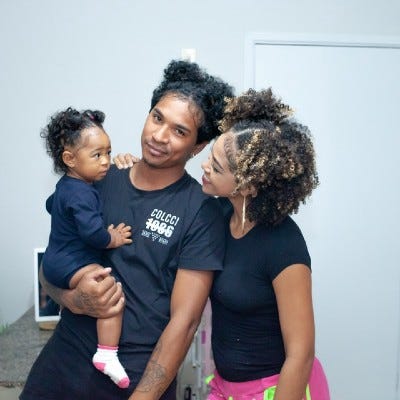Productively teaching black children about colorism
When I found out my cousin favored light-skinned women

“I only like light-skinned girls with long hair and light eyes,” my cousin told me while he munched on McDonald’s.
Up until that moment, I’d only been plotting three goals for our weekend hangout: talk him into eating my vegetarian meals instead of all junk food and takeout; make sure he completed all of his homework; and tutor him in areas that he was struggling in — minus math because that is not my area of expertise.
ADVERTISEMENT ~ Amazon
As an Amazon affiliate, I earn a percentage for every purchase with my referral link.

But tackling colorism was not on the menu. His comment caught me off-guard, primarily because his mother is a caramel complexion and his grandmother is my complexion. I’d never really given much thought into who he was dating. I was so relieved that he’d grown out of being that bad-ass kid who broke everything and was always in trouble. His love life was not something I even knew existed. But he was a teenager, so of course I should’ve known that was a high priority on his list.
Recommended Read: “‘Stop acting light-skinned’ and other stupid colorism comments ~ Why black folks need to knock it off with skin color jokes”
When your relatives don’t always look like you do
When I go to a family reunion on my mother’s side, you see a few chocolate drops here and there. But her side is heavily Creole and most grew up in a small town in Louisiana. While my light-skinned mother and I didn’t get the thinner, curly texture that majority of the women on her side of the family have, we both have the kind of thick and dark hair that looks like you could whack it right off of a pony’s tail.
(I’ve never worn weave for that reason alone. It’s enough of a job to control my own mane; I don’t want anyone else’s.) Other than that though, I don’t look like anyone on my mother’s side. I do, however, resemble folks on my father’s side — his older sister and my father specifically.
When he made the “light-skinned girls” comment, I paused for a second before I asked him, “Do you know what colorism means?”

Technically his skin color preference makes sense. People often want to date someone who looks like someone in their family. And he had plenty of examples. But the idea that my cousin preferred a particular type of black woman (or woman at all) just didn’t sit right with me. While he has every right to like whatever woman he likes, it’s the exclusion part that rattled my brain.
At what age should the colorism conversation start?

My cousin is light-skinned with a head of curly hair that he always keeps low and neat. Otherwise he’ll need ponytail holders almost immediately (similar to the man on the left). He’s a mischievous, witty guy — the kind of young man you assume girls will pay attention to. But he’s a bit too edgy to be considered a “pretty boy.” Or, at least, if he’s considered a “pretty boy,” he’d more likely be compared to Laz Alonso than Drake. (No disrespect to OVO. I Drake-and-Drive on the regular.)
ADVERTISEMENT ~ Amazon
As an Amazon affiliate, I earn a percentage from purchases with my referral links. I know some consumers are choosing to boycott Amazon for its DEI removal. However, after thinking about this thoroughly, I choose to continue promoting intriguing products from small businesses, women-owned businesses and (specifically) Black-owned businesses who still feature their items on Amazon. All five of my Substack publications now include a MINIMUM of one product sold by a Black-owned business. (I have visited the seller’s official site, not just the Amazon Black-owned logo, to verify this.) If you still choose to boycott, I 100% respect that decision.
I’d never met any of his girlfriends. But when I started picturing a list of women that his sister dated, they were also of a lighter hue. Is there anything wrong with dating a woman who looks more like Nicole Murphy than Gabrielle Dennis? No. But you’ll never convince me that one is more attractive than the other.
When he made the “light-skinned girls” comment, I paused for a second before I asked him, “Do you know what colorism means?” And the perplexed expression on his face gave me my answer. African-American children grow up entirely too fast as is. Between being punished for nothing more than being black and breathing, constant fear of the criminal justice system, repeatedly being mislabeled as aggressive and a too-often biased educational system, colorism isn’t the first topic that black parents (or even older cousins who just want to avoid McDonald’s) may even think about discussing.




